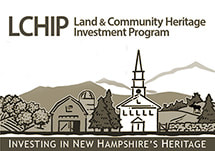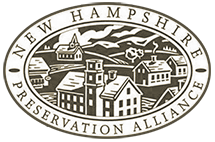Freemasonry and Brotherhood
The fraternity of Free and Accepted Masons has members from every ethnic group and every continent in the world. Brotherhood is a primary teaching of Masonry--that each person must be judged as an individual, on his own merits, and that such factors as race, national origin, religious creed, social status, or wealth are incidental to the person's character.
Freemasonry was brought to North America in the 1700s, a time when racial attitudes were very different from today. As happened with many churches and social organizations, these attitudes caused Freemasonry for African-American men to develop independently. In 1776 a group of African-American Masons in Boston began meeting as a Lodge; they were formally chartered by England in 1784 as African Lodge #459. African Lodge and its descendants developed a separate Grand Lodge system, known as Prince Hall Masonry (after the first Master of African Lodge). Prince Hall Grand Lodges ascribe to the same beliefs and rituals of Freemasonry as do all regular Masonic Lodges throughout the world.
Since a petition for membership in Masonry does not ask a petitioner's race, statistics on ethnic breakdowns are not kept by any Grand Lodge. Collecting such information is considered as inappropriate as collecting information about a Brother's financial standing. A lodge is not permitted to accept or exclude a candidate on the basis of his race or national origin. To petition for membership, the petitioner must be "a man of legal age, good reputation, and possess a belief in God." While election to membership in the fraternity is a matter for the local lodge to decide, the qualifications for membership are standard, and all Masons are required to observe them.
Freemasonry was brought to North America in the 1700s, a time when racial attitudes were very different from today. As happened with many churches and social organizations, these attitudes caused Freemasonry for African-American men to develop independently. In 1776 a group of African-American Masons in Boston began meeting as a Lodge; they were formally chartered by England in 1784 as African Lodge #459. African Lodge and its descendants developed a separate Grand Lodge system, known as Prince Hall Masonry (after the first Master of African Lodge). Prince Hall Grand Lodges ascribe to the same beliefs and rituals of Freemasonry as do all regular Masonic Lodges throughout the world.
Since a petition for membership in Masonry does not ask a petitioner's race, statistics on ethnic breakdowns are not kept by any Grand Lodge. Collecting such information is considered as inappropriate as collecting information about a Brother's financial standing. A lodge is not permitted to accept or exclude a candidate on the basis of his race or national origin. To petition for membership, the petitioner must be "a man of legal age, good reputation, and possess a belief in God." While election to membership in the fraternity is a matter for the local lodge to decide, the qualifications for membership are standard, and all Masons are required to observe them.
For more information, please contact:
Masonic Service Association Tel: (301) 476-7702 Toll-free: (855) 476-4010
3905 National Drive, Suite 280, Burtonsville, MD 20866
Masonic Service Association Tel: (301) 476-7702 Toll-free: (855) 476-4010
3905 National Drive, Suite 280, Burtonsville, MD 20866
|
This project was funded in part by a grant from the NH Preservation Alliance, which received support for its grants program from the New Hampshire Land and Community Heritage Investment Program (LCHIP).
|
Effingham Preservation Society is a 501(c)3 organization established in 1999 to preserve historic buildings and landmarks in Effingham, New Hampshire. The Preservation Society has agreed to be the Fiscal Agent of the Historic Town Hall Project.
|
TFollow THE HISTORIC TOWN HALL of Effingham, NH, on Facebook
Site Design by Harbour Light

